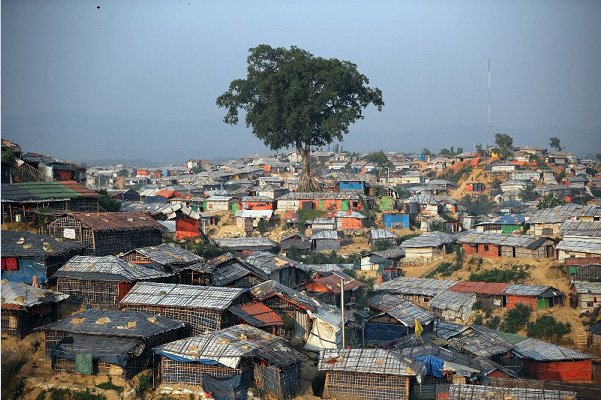Humayun Kabir Bhuiyan: Law enforcers and officials concerned claim adequate measure are being taken while many believe more can be done
UNB: The violence in Rohingya camps in Cox’s Bazar is nothing new, but the recent murder of Mohib Ullah and the killing of several forcibly displaced people from Myanmar has appeared to have elevated the law and order situation to a dangerous level.
The existing situation in the camps, quite understandably, is very worrisome for the residents, the host communities and the people of the country.
These incidents are certainly not helping with the image of the country and may somewhat cast shadow on the very commendable job Bangladesh has been doing for the hundreds of thousands of Rohingyas, who fled their homes in Rakhine to escape the unprecedented atrocities orchestrated by the Myanmar security forces, local Buddhist goons and people from other ethnic groups.
As they did after the murder of Rohingya leader Mohib Ullah, the diplomatic community in Bangladesh did not speak publicly about the gruesome killing of seven Rohingyas on Friday. But, it has been understood that they are concerned as well as worried. The United Nations High Commissioner for Refugees (UNHCR) reminded that it was the responsibility of the government of Bangladesh to ensure law and order in the camps.
Talking to a number of individuals familiar with the situation in the Rohingya camps, Dhaka Tribune has learnt that the residents of the settlements as well as the host communities have been suffering from a sense of insecurity.
Following the murder of Mohib Ullah on September 29, many Rohingya activists went hiding. The Friday killing has made things even worse. Many failed attempts of this correspondent to get in touch with several majhis, Rohingya community leaders, and some activists over phone appears to support the notion that people are living in fear.
According to the government officials and law enforcers, the main challenges with respect to law and order situation in the camps are infighting, illegal arms, drug smuggling and human trafficking.
When contacted, Mohammad Rafiqul Islam, additional superintendent of police of Cox’s Bazar, told Dhaka Tribune from the coastal town that the police, in coordination with the administration, Bangladesh Army and other agencies, were doing the needful to bring the law and order under and that the situation was now good.
“Look, there are so many issues. To provide safety to such a large number of people in such a small place is a big challenge. And, then there are some remote spots that are difficult to monitor,” he said.
Talking to this correspondent, some individuals, including a local leader, suggested that the law enforcers should conduct a combing operation in the camps to catch the criminals and confiscate arms. He also said that there must be a complete halt on Rohingyas going out of their camps and entering without proper documentation.
As put to Rafiqul Islam, he said: “We are doing and will do what is necessary to keep the camps safe.”
A government official with experience of serving in Cox’s Bazar noted that since the place was small it should be less difficult to carry out operations to apprehend criminals and recover arms.
A senior government official, who spent years in Cox’s Bazar in dealing with the Rohingya crisis, told Dhaka Tribune: “There have always been crimes in the camps. Things are really bad now and it’s natural.”
“I am afraid things will get worse in the coming days as the crisis is lingering. Sometimes, people get involved with bad things out of frustration and desperation. As Myanmar is virtually in a civil year, the displaced people do not see any hope of being repatriated to their homes in Rakhine.”
“The only solution is repatriation. And, it is not happening anytime soon,” he added.

